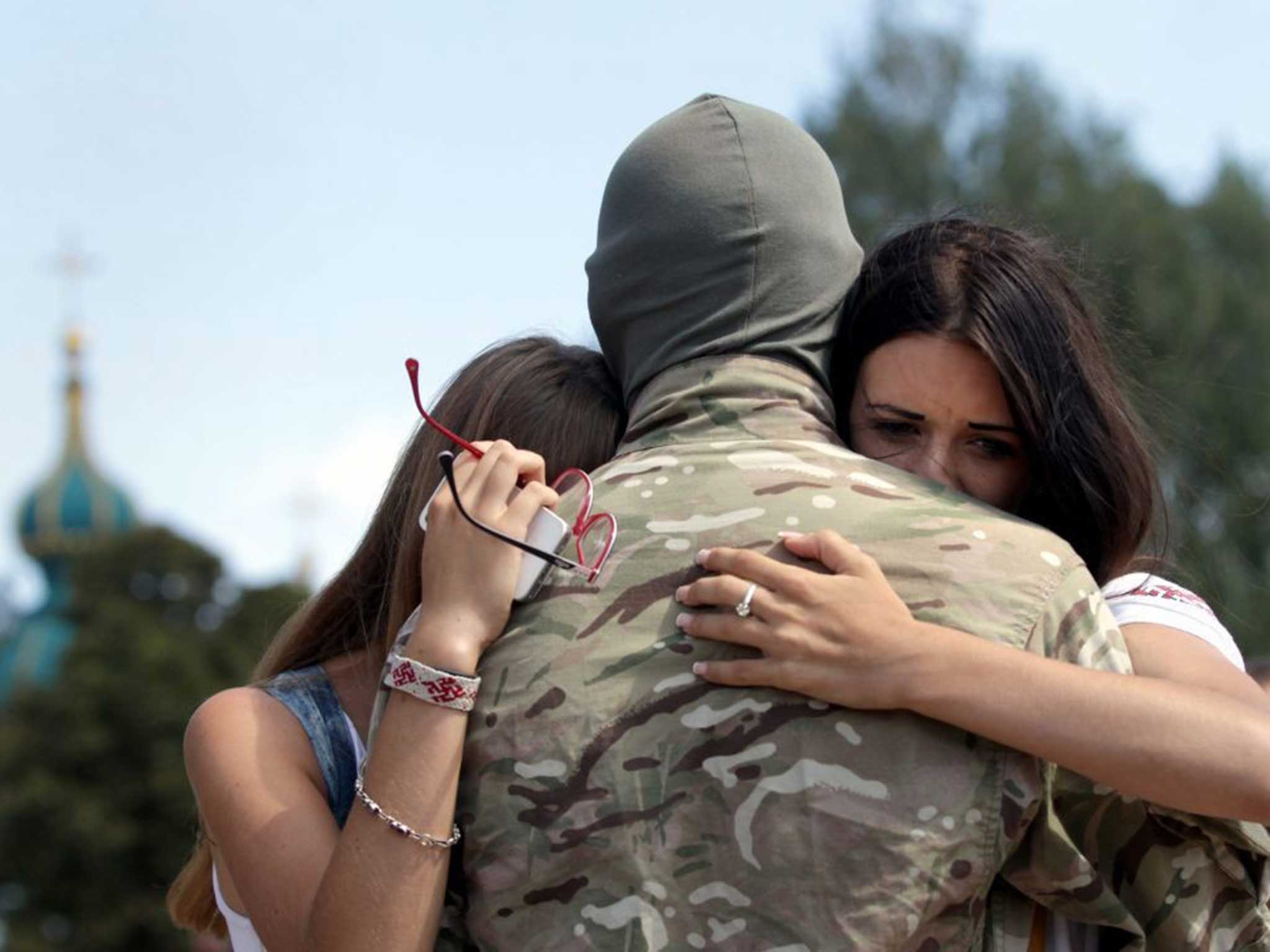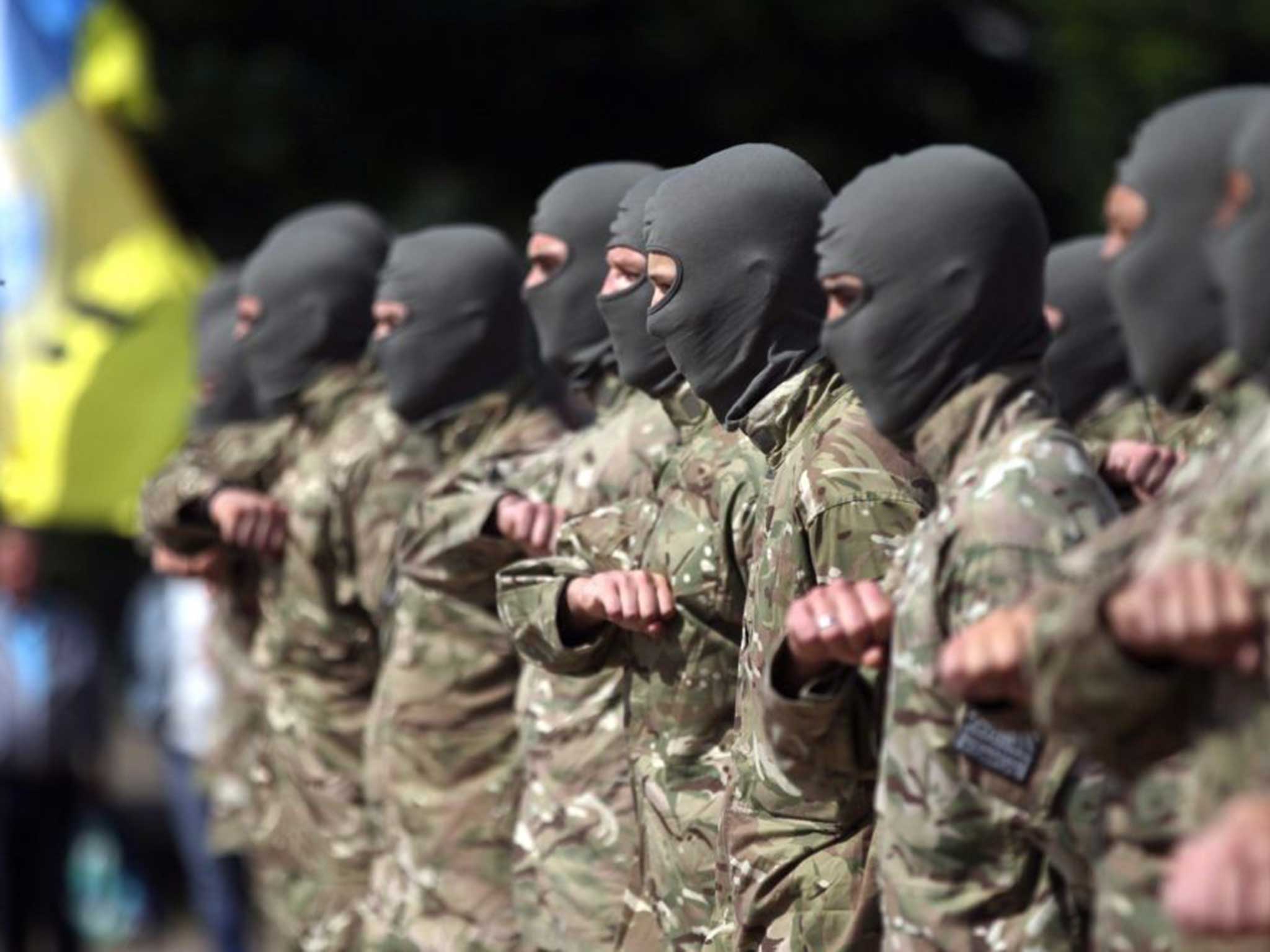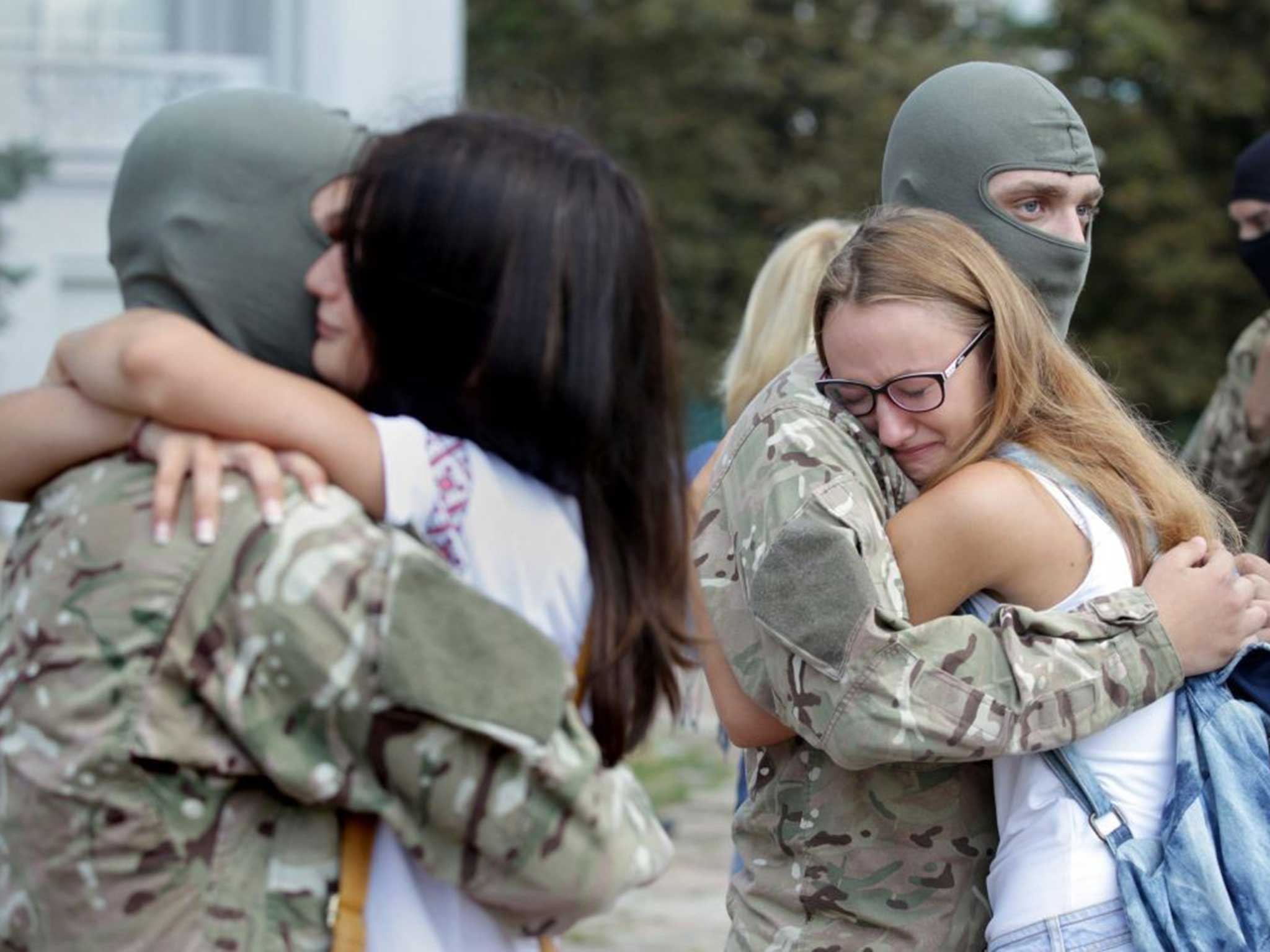Ukraine crisis: Kiev moves on last rebel stronghold
The war has left cities in the east without electricity or water for weeks while under heavy bombardment

Your support helps us to tell the story
From reproductive rights to climate change to Big Tech, The Independent is on the ground when the story is developing. Whether it's investigating the financials of Elon Musk's pro-Trump PAC or producing our latest documentary, 'The A Word', which shines a light on the American women fighting for reproductive rights, we know how important it is to parse out the facts from the messaging.
At such a critical moment in US history, we need reporters on the ground. Your donation allows us to keep sending journalists to speak to both sides of the story.
The Independent is trusted by Americans across the entire political spectrum. And unlike many other quality news outlets, we choose not to lock Americans out of our reporting and analysis with paywalls. We believe quality journalism should be available to everyone, paid for by those who can afford it.
Your support makes all the difference.Ukrainian forces have advanced into one of the last remaining separatist strongholds in a significant breakthrough in the civil war. At the same time, they lost yet another warplane to a missile strike and a rebel commander declared that reinforcements of 1,200 new fighters are joining from Russia along with armour and artillery to continue the struggle.
The endgame may be approaching after four months of strife in the east, but it threatens to be a bloody, vicious affair with many more being added to the death toll that has already claimed more than 2,000 lives, amid often indiscriminate bombardment of populated areas and accusations of war crimes.
Convoys from Russia heading into Ukraine became the focus of international attention in the crisis in recent days. The Ukrainian government has now accepted that some of them are carrying humanitarian supplies, while confusion surrounds the supposed crossing of the border by a second, armoured, column which led to a flurry of accusations from the West that the Kremlin had carried out an invasion.
Petro Poroshenko, the Ukrainian President, told David Cameron that the convoy was “eliminated” by his forces. But no evidence was produced of this and officials in Kiev attempted to downplay the “victorious attack” over the weekend, with Colonel Andriy Lysenko, the chief security spokesman, maintaining it was a “commonplace incident”. The Russian Foreign Ministry said that the armoured column did not cross the frontier and its alleged destruction was “some kind of fantasy”.

Such a clash between the regular forces of Russia and Ukraine with the likelihood of dozens killed would have been an incendiary development. But even if that did not actually happen, there appears little prospect yet of peace and an end to the bloodletting.
The foreign ministers of Germany, France, Ukraine and Russia were due to meet today in Berlin. But, while international focus has been on Gaza and Iraq, the fighting in eastern Ukraine, with the use of tanks, artillery and warplanes had left swathes of areas devastated and a growing humanitarian crisis with thousands of refugees.
“There was initial interest, then the only time the attention switched back to Ukraine was after the shooting down of MH17 and then it was brief. What we have here is a war going on actually in Europe, which is very nasty and getting nastier,” said Robert Emerson, a security analyst who had been charting the conflict. “ There is a big refugee problem, pretty severe damage to infrastructure, and polarisation between the communities.”
Luhansk, where Ukrainian troops are said to have captured a police station yesterday in the Velika Vergunka district, has had no electricity or water for weeks while under heavy bombardment. Shells have been landing in the centre of Donetsk, and government forces yesterday moved into Yasynuvata, a strategically important point in the approach to the capital of the People’s Republic of Donetsk.
However, storming the two cities would be a hugely difficult enterprise, with the high risk of significant civilian casualties. Armoured cars and artillery pieces were taken into Donetsk by separatist fighters over the weekend. Aleksandr Zakharchenko, the Prime Minister of the People’s Republic, claimed to be receiving “150 units of military hardware of which 30 are actual tanks and the rest are infantry fighting vehicles and armoured personnel carriers and 1,200 personnel who underwent four months of training on the territory of the Russian Federation.”
After an outcry over what was seen as his boast about getting Russian armour, Mr Zakharchenko blamed “mistranslation” and insisted that it had been obtained from Ukrainian troops. “They left us so much hardware that we can’t find enough people to crew it.” The reinforcements were not Russian servicemen but “ethnic Ukrainian volunteers” from across the border. Other “volunteers” who had arrived for the defence of the separatist strongholds included “Turks, a great many Serbs, Italians and Germans and even two Romanians”.
In fact, a number of ethnic Russians have disappeared from the highest echelons of the rebel leadership.
Among those who have left, reportedly now back in Russia, include Alexander Borodai, who was Mr Zakharchenko’s predecessor as the Prime Minister of People’s Republic of Donetsk: Valeriy Bolotov, the head of the Luhansk Council, and, most significantly, Igor Strelkov, also known as Igor Girkin, the military commander who has not been seen for days. The separatists denied reports that he had been injured in the fighting.
The loss of the rebel leadership and friction between different groups had undoubtedly helped the government forces in gaining momentum. But their newfound confidence has resulted in the use of tactics, such as use of heavy artillery in urban areas, which has led to increasing civilian casualties.

Some of the most aggressive acts have come from private militias, funded by oligarchs, which have drawn foreign mercenaries into their ranks as well as extreme right-wingers including self-proclaimed neo-Nazis.
Those still living in the rebel-held areas are full of foreboding. Viktor Kuznetsov has watched with mounting worry how protests which he supported against the Kiev administration turned into a disaster. “We have legitimate grievances in the east. Many of us wanted autonomy, but we didn’t think it would turn into such killing and destruction,” he said at his home in Donetsk.
“Some of the separatist groups were undisciplined, out of control, but the government forces have been treating us like the enemy, bombing us without pity. And they are bringing fascists with them: they want to drive us from our homes and bring in people from the west [of Ukraine] to take our homes. There will be nothing but trouble in the future, a lot more deaths.”
Join our commenting forum
Join thought-provoking conversations, follow other Independent readers and see their replies
Comments